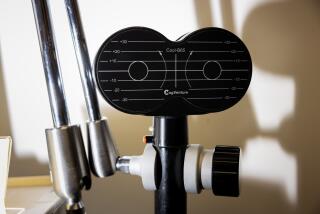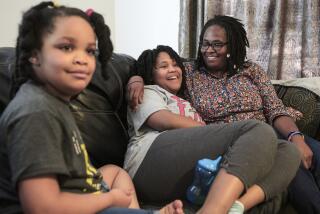Siblings of autistic children may have some autism-related traits, study says
- Share via
UPDATED: An earlier version of this post incorrectly attributed the research to the University of Washington.
Scientists at the Washington University School of Medicine have uncovered more evidence of a genetic basis for autism. Reviewing surveys collected from more than 1,000 families with autistic kids, they discovered that siblings of autistic children who have not been diagnosed with the disease often exhibit mild traits of autism, including speech delays.
The team sifted through information about almost 3,000 children from 1,235 families in which at least one child was diagnosed with an autism spectrum disorder and in which there was at least one full biological sibling. The families were participants in the Interactive Autism Network, an online research registry that collects autism-related data from volunteer families nationwide.
Parents involved in this study had previously answered a 65-item questionnaire called the Social Responsiveness Scale. The survey helps them identify traits associated with autism in their children.
Almost 11% of the families had an additional child diagnosed with autism, the data showed. An additional 20% had some language delay as young children. Half of those kids “exhibited autistic qualities of speech,” the researchers wrote in an online edition of the American Journal of Psychiatry. (These include the use of invented words or odd or repetitive phrases, reversing pronouns and asking “socially inappropriate questions.”) The data also suggested that girls, who are less likely to be diagnosed as autistic than boys, may display mild autistic traits more often than previously thought.
Based on the results, the team concluded, scientists studying autism may have traditionally underestimated “sibling recurrence” of the disease. “Nonautism-affected” kids, as defined in earlier research on siblings and autism, are still affected by autism-causing genes -- and still share some autistic traits. This matters because, in the past, studies comparing DNA, brain images and other biological measures of autism have assumed that undiagnosed means unaffected. Maybe not.
“It’s not an all or nothing condition,” lead author Dr. John N. Constantino said in a statement. Constantino also said that understanding more about how autism and autism-related traits may be inherited could one day help doctors predict transmission in families and intervene earlier to help affected kids.
--Eryn Brown/Los Angeles Times






